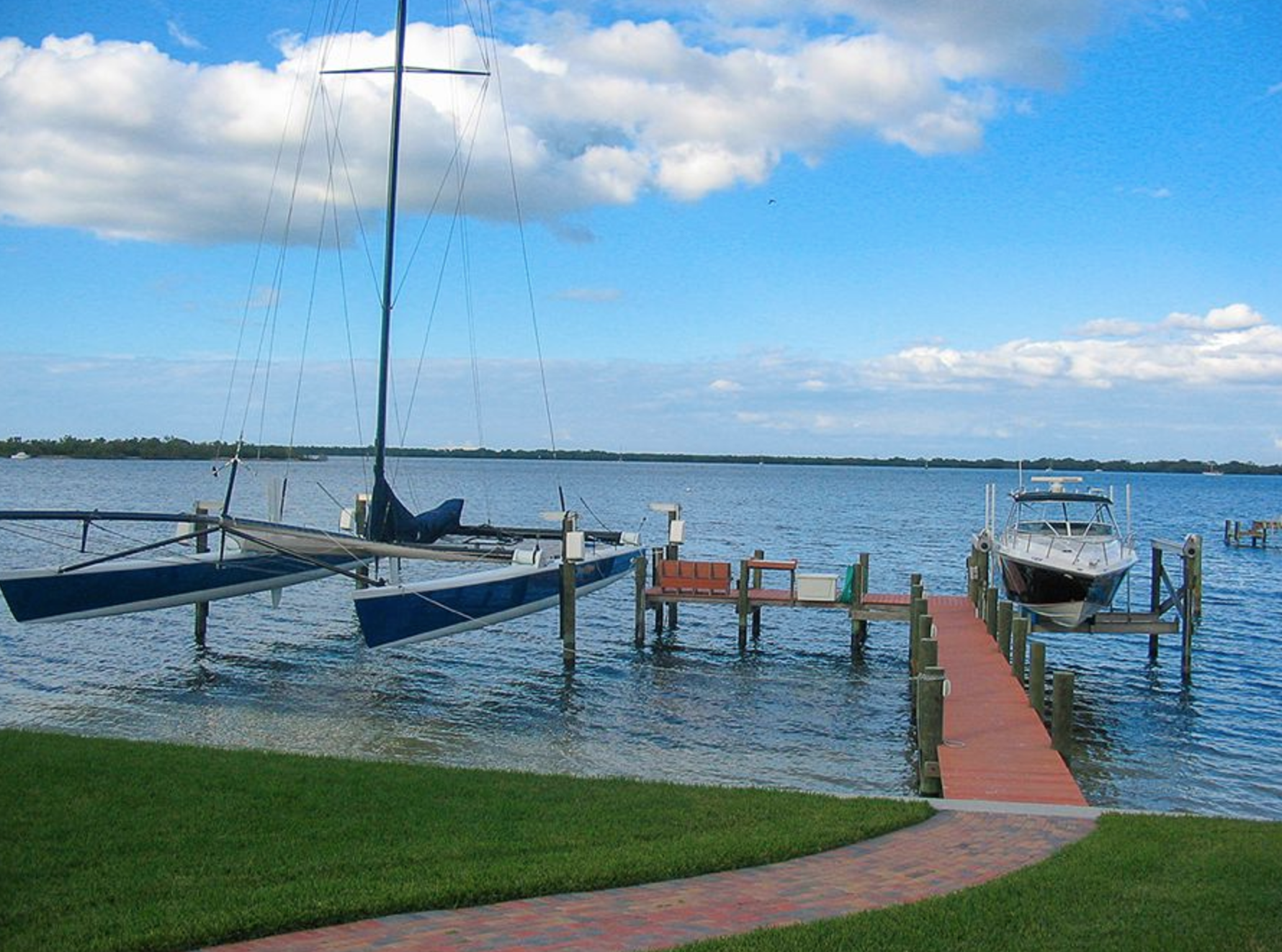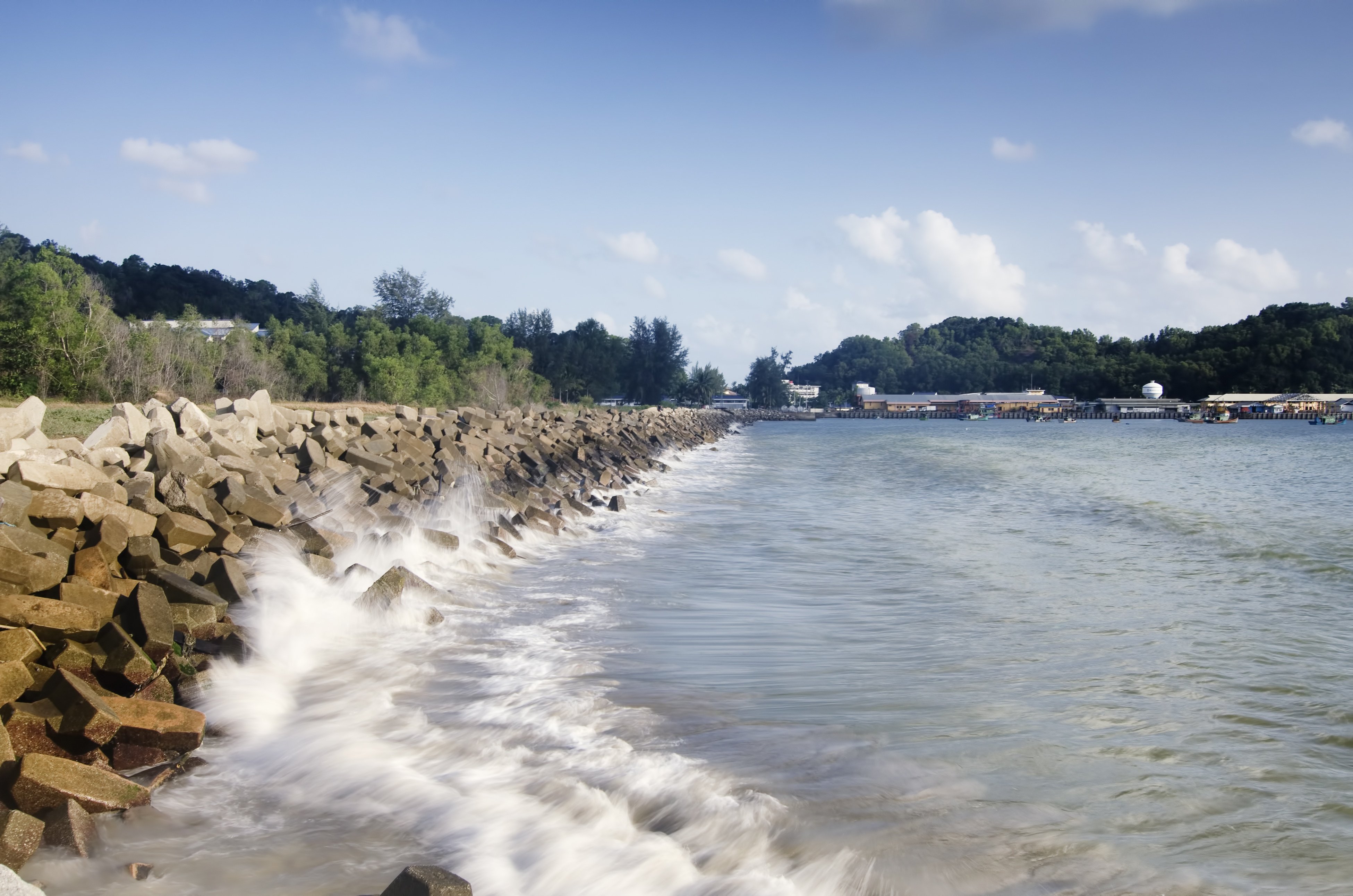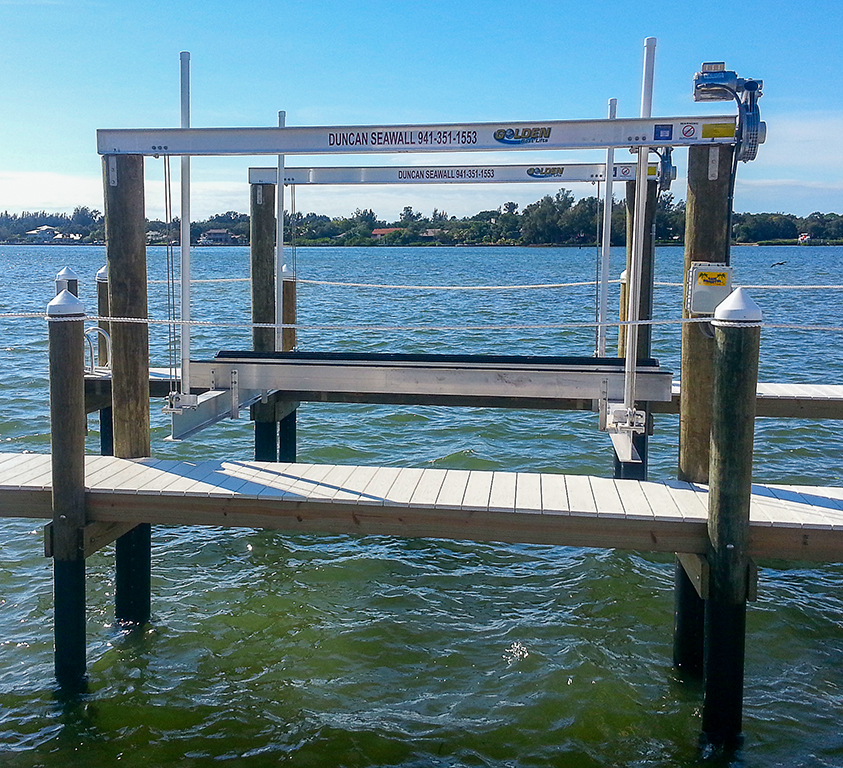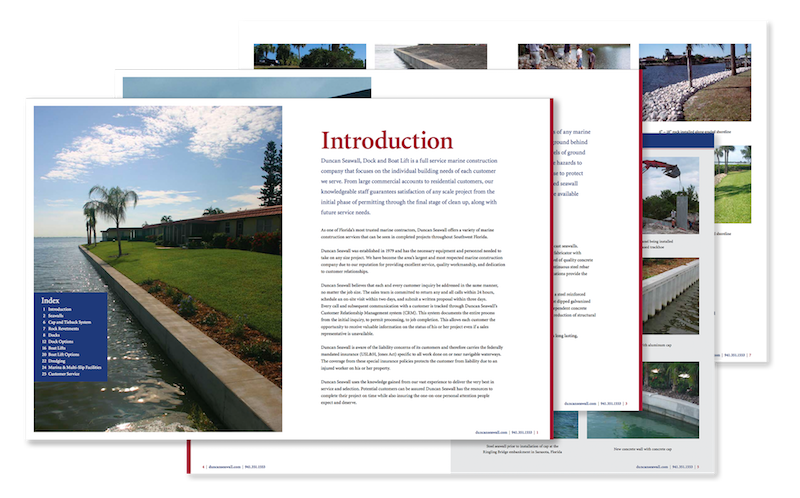Choosing the right dock for your waterfront property affects safety, convenience, and long-term value. Both floating and static docks have strengths, but the best choice depends on your water conditions, intended use, and property goals. Understanding the differences will help you make a decision that supports your waterfront lifestyle for years to come.
Related Blog: Flooding 101: How Waterfront Homeowners Can Protect Their Property
What Is a Floating Dock?
A floating dock rests on flotation devices, allowing it to rise and fall with water levels. Anchored to the shore or secured with pilings, the platform moves naturally with tides, seasonal changes, and weather conditions.
Key advantages:
- Adapts to changing water levels — ideal for tidal areas or lakes with seasonal variation
- Easier boarding — stays close to the water surface
- Flexible, modular design — can be reconfigured or expanded
Considerations:
- Less stable in rough water or heavy boat traffic
- Flotation systems require periodic maintenance
- May produce noise as water moves beneath the platform
What Is a Static (Fixed) Dock?
A static dock is supported by pilings driven into the lake or seabed, keeping the platform at a constant height above the water.
Key advantages:
- Very stable — solid footing even in choppy water
- Long-lasting — can serve decades with minimal upkeep
- Quieter — no movement means minimal noise
- Feels like a natural extension of your property
Considerations:
- Boarding height varies with water level
- Higher upfront construction costs
Side-by-Side Comparison
Feature |
Floating Dock |
Static Dock |
|
Stability & Durability |
Adequate for most recreational use; can move in waves |
Excellent for heavy use and large boats; stable in storms |
|
Adaptability |
Rises and falls with tides; handles fluctuating water levels |
Fixed height; best for consistent water levels |
|
Noise & Comfort |
Can creak or shift with waves |
Solid, quiet platform |
|
Maintenance |
Flotation systems and hardware require inspection |
Pilings and connections need occasional monitoring |
|
Cost |
Lower upfront, higher ongoing maintenance |
Higher upfront, potentially better long-term value |
Factors to Consider Before Choosing
When choosing a dock, start by looking at your water conditions, intended use, budget, and long-term property goals. Floating docks are ideal for areas with fluctuating water levels, calm waters, and smaller boats, offering flexibility and lower upfront costs. Static docks perform best in stable waters, supporting larger boats, entertaining spaces, and permanent features, and they provide long-term value despite higher initial investment.
Which Dock Is Right for You?
Opt for a floating dock if you need adaptability for changing water levels, plan to use smaller watercraft, or want a lower-cost, flexible solution. Choose a static dock if you want maximum stability, support for larger boats or heavy usage, and long-term property value.
Make the Right Choice for Your Waterfront
There is no one-size-fits-all solution. The best dock matches your environment, lifestyle, and long-term goals. Consider water conditions, usage, budget, and property objectives. Each dock type has advantages in the right situation, helping ensure your waterfront remains functional, safe, and enjoyable for years to come.
Ready to make an informed decision? Talk to the experts at Duncan Seawall to find the dock that perfectly fits your waterfront property.










